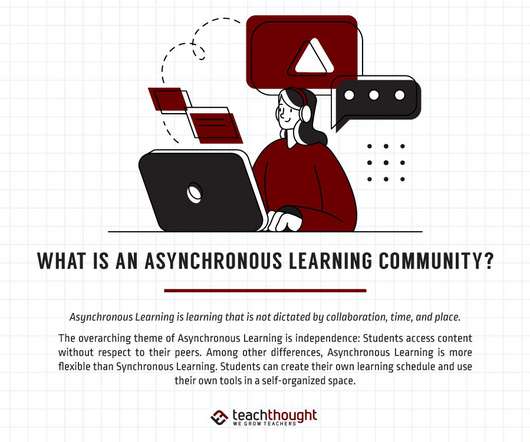#DLNchat: How Have MOOCs Impacted Approaches to Student Learning?
Edsurge
APRIL 12, 2018
Has the MOOC revolution come and gone? Or will the principles of the MOOC movement continue to influence higher ed? On Tuesday, April 10 the #DLNchat community got together to discuss and debate: How Have MOOCs Impacted Approaches to Student Learning? How many MOOCs have you signed up for and how many have you taken?”
































Let's personalize your content